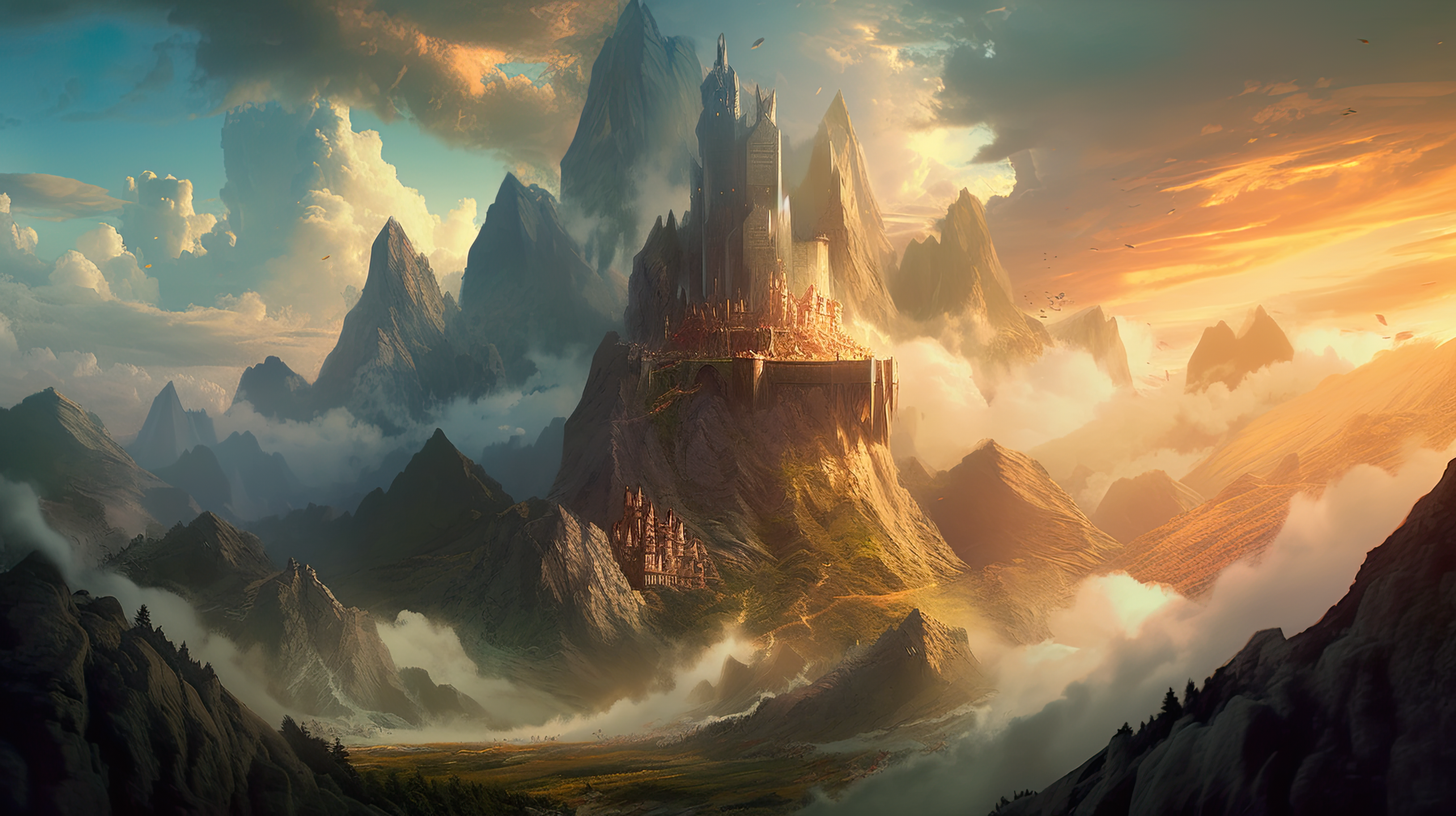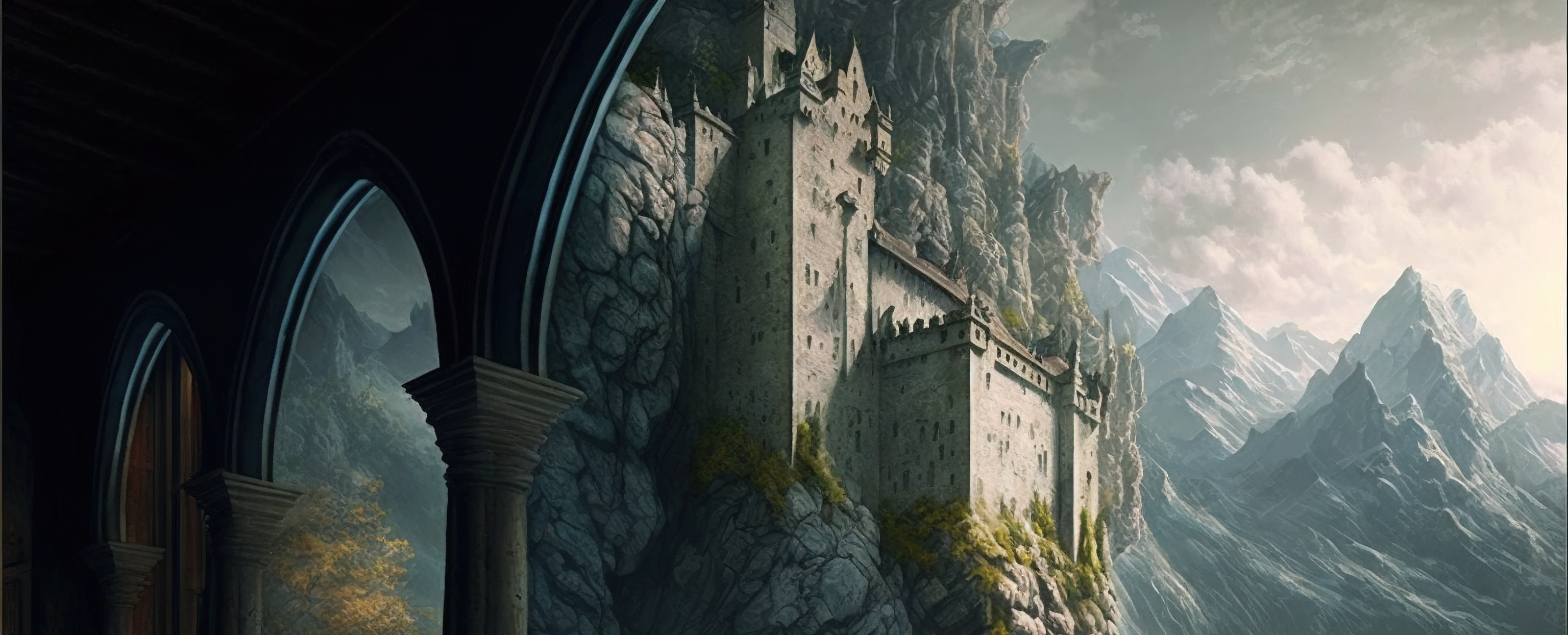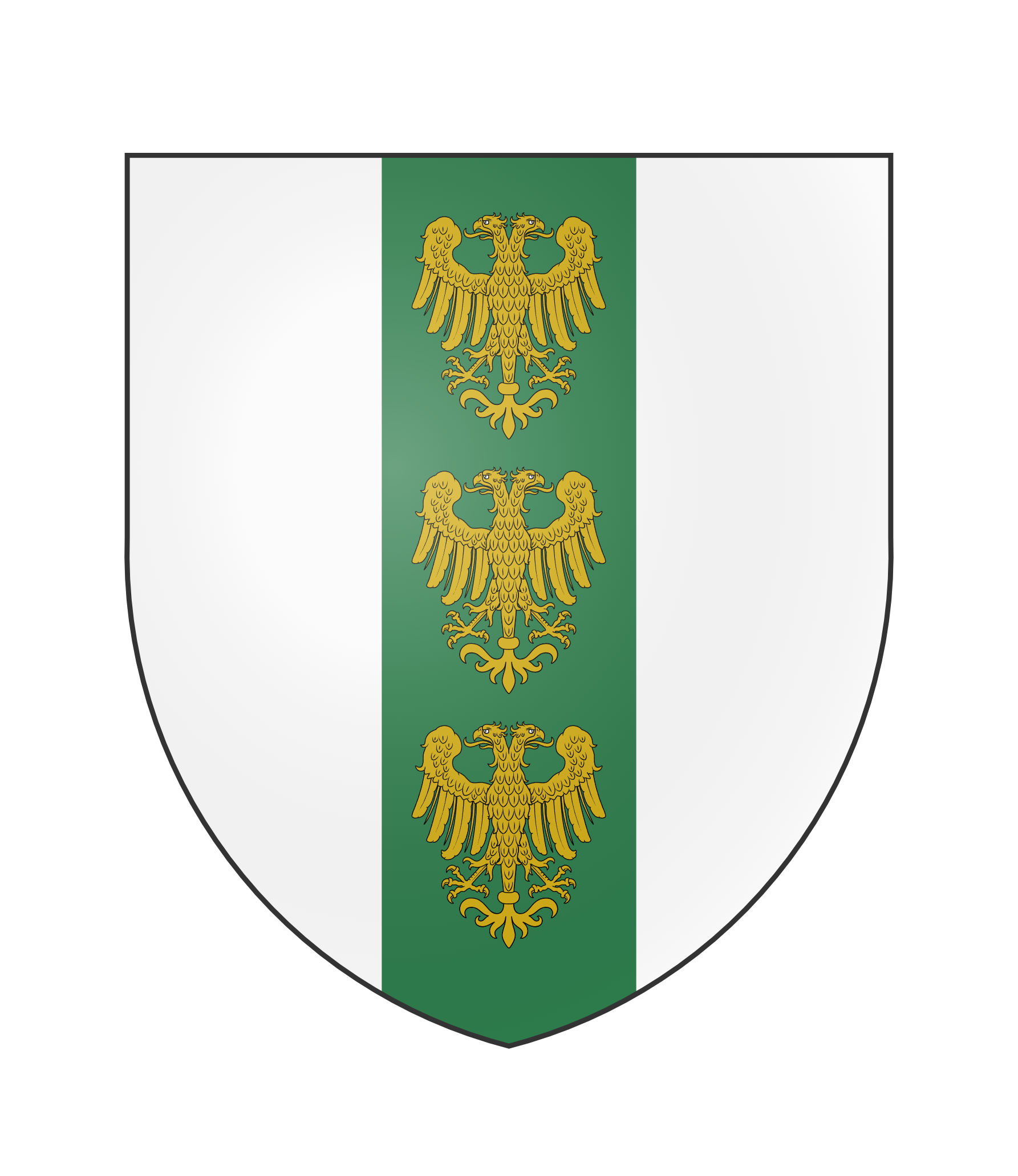The Ilmari, the Tribe of Winds
Overview
The Ilmari are part of the four elemental tribes of Elementia. They have governance over the powers of wind, lightning and air. The Ilmari are renown weavers and bronze smiths. Whilst they are considered nomadic by many other tribes, this is factually untrue. The Ilmari are required to go on pilgrimages to various elemental altars across the world from a young age, and thus are often seen by other peoples as constantly wandering. Even should they decide to take the nomadic life, the Ilmari ensure that guest houses are always present for those who travel when they return.
The Ilmari are natives of the Great Roc, a series of perilous mountain chains that rise like columns of marble above the cloud cover. They have but one city, known as Ilmatardal. Carved into the stone of the Great Roc, it is a city of bridges, columns, alcoves and towering spires that stand in an expanse of clouds akin to giants in the sea. The higher one goes, the richer the homes and districts. Children are often seen traversing between spires on winged gliders, whilst great banners of scintillating bronze silk flow gently in the wind.
Culture
Culture and cultural heritage
The Ilmari are renown for their crafts, their city, but also their peculiar method of governance. Being native to a city-state, the Ilmari have a different way of seeing the world, namely with regards to gender roles and their needs for governance. The Ilmari tribe has developed a system of governance known as a demarchy.
A group of chosen jurors would be randomly selected to govern every 5 years from a pool of eligible citizens. However, only men, who had served in the Ilmari military, who were over 30 years of age, who earned a certain amount every month, and who hadn’t been chosen previously could be considered. The Ilmari believe in the importance of debate and the will of the many. The Ilmari way is to ponder all things, and make a decision based on the majority.
Infamously, therefore, the place of women in Ilmari society is greatly diminished. They can manage businesses but never own them. Military matters are solely the domain of men, and they are not considered eligible citizens until they have reached the venerage age of 50, thus severely their rights, income, possessions and civil obligations. The main method through which women can escape the fetters of society is by becoming the vestals of the Great Roc, and thus dedicating their lives to the practice of elemental magic.
The Vestals of the Roc
These are a unique caste of Ilmari tribeswomen, who dedicate their lives to the worship, teaching and practice of elemental magic. Very few are accepted, and are even then imposed a series of restrictions to prevent their powers from ever being abused. The Vestals are women of great political influence within the Demarchy, and often preside when the jurors of the council come to a tie or cannot make a decision. It is considered unholy for members of the Vestals to be wed, or in a relationship, and thus any prior spouses or lovers they had before joining are either exiled, or broken on the wheel and kept as servants of the temple.
Art & Architecture
Architecture: The Ilmari's architecture is a peculiar mix of deep alcoves that line the flanks of their pillared mountain homes, impossibly thin bridges of burnished marble, and towering complex forts of alabaster stone. Eagle imagery is everywhere in Ilmatardal, and statues of great eagles stand askew akin to protective totems and shrines across the city. Skyports to host the winged gliders that allow the Ilmari to scale and descend peacefully are found everywhere in the city, with some of the widest mountains hosting tiered marketspaces and forums for discussion.
Bronzework: The bronzesmiths of the Ilmari are known not for their sturdiness but the complexity of their craft. It is no surprise, then, that they are capable of weaving cloth from metal, known as bronzesilk. Albeit it is not as hard as chainmail, it is nonetheless lighter and tougher than the padded gambesons of the landfolk. Ilmari bronzework is prized across Elementia, and come in the form of bowls, jewellery, ornaments of all kinds, and even weapons. A rumour claims that a sword forged by an Ilmari bronzesmith will take to magic better than any other metal, and thus can be enchanted more easily. It is, unfortunately, still make from bronze.
Tailoring: The Ilmari's garb is notorious for being flowing and enrapturing. Ilmari robes are woven with bronzesilk and a variety of other fabrics, creating an airy and resilient garment. Some Ilmari clothes are said to allow one to glide from their fall, whilst others are even capable of holding enchantments better than other robes. Many travellers to Ilmatardal claim this is true, and have seen men and children - devoid of magic - simply leaping off a ledge and floating to the ground below. Nevertheless, they do not seem capable of such flight whens old to other folk, and might simply be a clever lie for the sake of merchanthood.
Common Myths and Legends
The name 'Ilmari' comes from the tribes dialectic term for 'flight'. It itself is based off an ancient god-figure known as Ilmarien, the firstborn son of the Great Roc, Ilmatar, and first wind mage of the tribe. Legend has it a widow was desperately in need of a child, for else her parents would banish her into the lands below. She fled to the peaks to escape her parents' wrath, and fed off of the eggs of nesting eagles she found to stave off the hunger found in the mountains.
Given the choice between birthing a child, or dying of starvation, the woman prayed to Ilmatar, greatest of rocs, for help. The winds guided her to an alcove in the flank of the mountains, where cracks and slopes in the rock led to the great eagle's nest. Exhausted, and famished, she collapsed amidst the feathers and twigs of the nest. A great shadow passed over her, and when she woke, she was cradling an egg the size of a child. The widow nursed it as her own, and after decades it finally cracked, revealing a fully grown young man.
This was Ilmarien, and his mastery over the winds was so great, the world was plunged under storm when he raged, and swayed to slumber when he slept. The tribes of landfolk prayed to Ilmarien to keep himself under control, and in return he agreed, provided his mother could spend her last years in her homestead. When her parents refused, Ilmarien warned his mother's people that all who wished to survive his wrath join his family in the mountains, whilst all who opposed him would be swept from the earth and smote by lightning. What remains of these survivors are the Ilmari of today.
The Great Roc
The bones of Ilmatar the Great Roc, long dead beast of Elemental Air, lie at the highest point of Ilmatardal. The Great Roc, after whom the region takes its name, was infamous across Elementia for changing the winds and seasons on a whim, and being capable of creating hurricanes with a beat of its wings. It was the master of air, and hosted the members of the Tribe of Winds as it would its own children. None know exactly what killed it, but upon its passing, the land changed with it. The winds carved the mountains, and sheltered the Ilmari from invaders, almost as if it had gained sentience.
Names of the Ilmari
The Ilmari do not have the same understanding of names as other tribes. They have no family names, for instance, and instead focus solely on the individual. This can make their names rather long, as the children take on their name, the names of their parents, and the parents before them.
Typical Male Names: Miekka, Vasara, Vaino, Ilmar, Ilarien, Ampuja, Kalamirien, Kalervo, Venemirien, Vaania.
Typical Female Names: Aino, Puuko, Ikuturso, Vihavaino, Kivutar, Vilutar, Ikuturso, Unto, Salme, Untamo.
Typical Female Names: Aino, Puuko, Ikuturso, Vihavaino, Kivutar, Vilutar, Ikuturso, Unto, Salme, Untamo.
Character of the Ilmari
The Ilmari are a traditionalist folk, who keep to their mountain homes and only really explore the world in their youth. They claim this gives them an enlightened view of the world, however it often simply reinforces their want for home.
Some Ilmari break this strain, however they have the ill reputation of being self-righteous. Their views of women clash often with that of other tribes and societies. Stereotypically, the common Ilmari is detached from the rest of the world, and yet wise regardless.
They consider themselves freer than the common man, and attempt to preach this freedom to other peoples. They are often regarded with some air of mystery, and turn many heads when walking into a new town or city, due to their simple strangeness.
For example, if an Ilmari warrior were to disarm and incapacitate an enemy, who then surrenders, they would be more likely to ignore the surrendered figure and move on than give them any place for shame or honour; should the enemy try to strike once more, then they will be slain.
Cultural Symbols
Flower: The edelweiss.
Animal: The eagle, or the great roc (two headed eagle)
Coat of Arms: Three great rocs on a banner of emerald green.
Animal: The eagle, or the great roc (two headed eagle)
Coat of Arms: Three great rocs on a banner of emerald green.
Common Taboos
Cannibalism, tends to be an obvious taboo across all nations.
- Those found guilty of cannibalism are executed by being chained to a rock and eaten by vultures.
- Those foundy guilty of this crime are walled alive in a forgotten alcove of the mountains.
- Those found guilty of theft will have their hands cut off and worn around their neck until they rot away.
Related Organizations







Comments